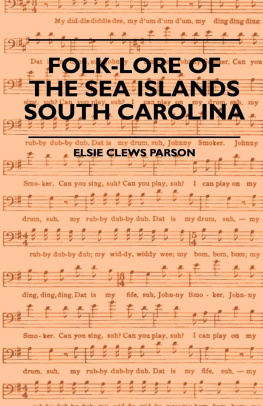SUPERSTITIOUS BELIEFS IN THE WEST OF SCOTLAND WITHIN THIS CENTURY.
WITH
AN APPENDIX,
SHEWING THE PROBABLE RELATION OF THE MODERN FESTIVALS OF CHRISTMAS, MAY DAY, ST. JOHN'S DAY, AND HALLOWE'EN, TO ANCIENT SUN AND FIRE WORSHIP.
BY
JAMES NAPIER, F.R.S.E., F.C.S., &c.,
Author of Manufacturing Art in Ancient Times, Notes and Reminiscences of Partick, &c., &c.
PAISLEY: ALEX. GARDNER.
1879
PREFACE
The doctrine taught concerning Satan, his motives and influence in the beginning of this century, supplied the popular mind with reasons to account for almost all the evils, public and private, which befell society; and as the observed ills of life, real or imaginary, greatly outnumbered the observed good occurrences, the thought of Satan was more constantly before the people's mind than was the thought of God. Practically, it might be said, and said with a very near approach to truth, that Satan, in popular estimation, was the greater of the two; but theoretically, the superiority of God was allowed, for Satan it was believed, was permitted by God to do what he did. It was commonly said, "Never speak evil of the Deil, for he has a long memory." This Satanic belief gave rise to a great amount of Folk Lore, and affected the whole social system. Historians who take no account of such beliefs, but regard them as trivialities, cannot but fail to represent faithfully the condition and action of the people. Folk Lore has thus an important historical bearing. Every age has had its own living Folk Lore, and, beside this, a residuum of waning lore, regarded as superstitious, and so it is at the present day. When we speak of the Folk Lore of our grandfathers and great-grandfathers, we believe that we are speaking of beliefs which have past away, beliefs from which we ourselves are free; but if we consider the matter carefully we will find that in many respects our beliefs and practices, although somewhat modernized, are essentially little different from those of last century. Among the better educated classes it may be said that much of the superstitions of former times have passed away, and as education is extended they will more and more become eradicated; but at present, in our rural districts especially, the old beliefs still linger in considerable force. Many think that the superstitions of last century died with the century, but this is not so; and as these notions are curious and in many respects important historical factors, I have thought it worth while to jot down what of this Folk Lore has come under my observation during these last sixty years.
In this collection I do not profess to include all that may come under the head of Folk Lore, such, for example, as the reading of dreams and cups, spaeing fortunes by cards or other methodsthat class of superstitions by which designing persons prey upon weak-minded people.
One principal object which I had in view in forming this collection, was that it might supply a nucleus for the further development of the subject. The instances which I have adduced belong to one locality, the West of Scotland, and chiefly the neighbourhood west of Glasgow, but different localities have different methods of formulating the same superstition. By comparison, by separation of the local accretion from the constant element, an approach to the original source and meaning of a superstition may be obtained.
I have hope that the Folk Lore Society, just instituted, will consider such details and variations, and endeavour to trace their history and origin, and fearlessly give prominence to the still existing superstitions, and exhibit their degrading influence on society.
CHAPTER I.
INTRODUCTORY.
The primary object of the following short treatise is to give an account of some of those superstitions, now either dead or in their decadence, but which, within the memory of persons now living, had a vigorous existence, at least in the West of Scotland. A secondary object shall be to trace out, where I think I can discover ground for so doing, the origin of any particular superstition, and in passing I may notice the duration in time and geographical distribution of some superstitions. But, on the threshold of our inquiry, it may be of advantage to pause and endeavour to reach a mutual understanding of the precise meaning of the word Superstitiona word apparently, from the varied dictionary renderings given of it, difficult to define. However we may disagree in our definitions of the word, we all agree in regarding a superstitious tone of mind as weak and foolish, and as no one desires to be regarded as weak-minded or foolish, we naturally repel from ourselves as best we can the odious imputation of being superstitious. There are few who seek to know what superstition in its essence really is; most people are satisfied to frame an answer to suit their own case, and so it happens that we have a multiplicity of definitions for the word, many of which are devoid of scientific solidity, and others have not even the merit of intelligibility. A recent definition, extremely elastic, was propounded by a popular preacher in a lecture delivered before the Glasgow Young Men's Christian Association and reported in the newspapers,"Superstition is Scepticism," which may be legitimately paraphrased "Superstition is not believing what I believe." Although this definition may be very gratifying to the self pride of most of us, we must nevertheless reject it, and look for a more definite and instructive signification, and for this end we may very properly consult the meanings given in several standard dictionaries and lexicons, for in them we expect to find precision of statement, although in this instance I believe we shall be disappointed. Theophrastus, who lived several centuries before the Christian era, defines "Superstition" according to the translation given of his definition in the Encyclopdia Metropolitana, as "A cowardly state of mind with respect to the supernatural," and supplies the following illustration: "The superstitious man is one, who, having taken care to wash his hands and sprinkle himself in the temple, walks about during the day with a little laurel in his mouth, and if he meets a weasel on the road, dares not proceed on his way till some person has passed, or till he has thrown three stones across the road."
Under "Superstition," in the Encyclopdia Metropolitana, the following definitions are given:
1st.Excess of scruple or ceremony in matters of religion: idle worship: vain reverence: a superfluous, needless, or ill-governed devotion.
2nd.Any religious observance contrary to, or not sanctioned by, Scripture or reason.
3rd.All belief in supernatural agency, or in the influence of casual occurrences, or of natural phenomena on the destinies of man which has no foundation in Scripture, reason, or experience.
4th.All attempts to influence the destiny of man by methods which have no Scriptural or rational connection with their object.
Walker's Dictionary:
"Unnecessary fear or scruple in religion: religion without morality: false religion: reverence of beings not properly objects of reverence: over-nicety: exactness: too scrupulous."
Chambers' Dictionary:
"A being excessive (in religion) over a thing as if in wonder or fear: excessive reverence or fear: excessive exactness in religious opinions and practice: false worship or religion: the belief in supernatural agency: belief in what is absurd without evidences: excessive religious belief."





